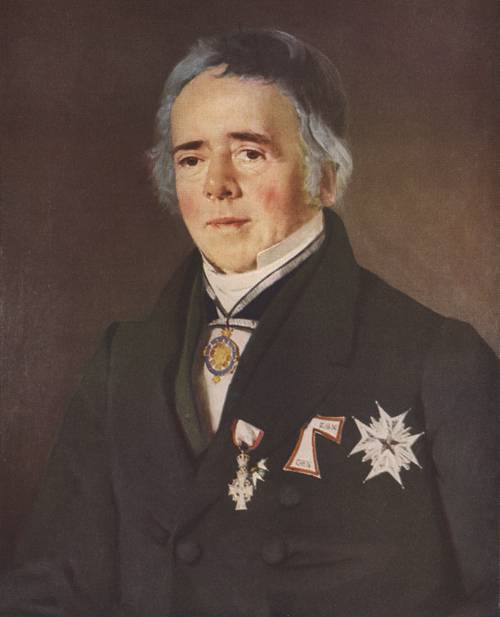
FAQ About Hans Christian Ørsted

Who was Hans Christian Ørsted?
Hans Christian Ørsted was a Danish physicist and chemist who lived from 1777 to 1851. He is best known for discovering the phenomenon of electromagnetism, which demonstrated a relationship between electricity and magnetism. This discovery laid the groundwork for future developments in the field of electromagnetism and was instrumental in the creation of technologies like the electric motor.

What is Hans Christian Ørsted best known for?
Hans Christian Ørsted is best known for discovering electromagnetism in 1820. His experiment demonstrated that electric currents create magnetic fields, which was a monumental step in the understanding of physics and the link between electricity and magnetism.

How did Hans Christian Ørsted discover electromagnetism?
In 1820, Hans Christian Ørsted discovered electromagnetism by observing that a compass needle was deflected from magnetic north when an electric current from a battery was switched on and off. This unexpected movement indicated that the electric current was creating a magnetic field that affected the compass needle.

What impact did Ørsted’s discovery have on technology?
Ørsted's discovery of electromagnetism had a profound impact on technology, leading to the development of the electric motor, the telegraph, and later, more complex devices like generators and transformers. It set the stage for further research by scientists such as André-Marie Ampère and Michael Faraday, who expanded our understanding of electromagnetism.

Where was Hans Christian Ørsted born?
Hans Christian Ørsted was born on August 14, 1777, in Rudkøbing, on the island of Langeland in Denmark.

Did Hans Christian Ørsted invent anything besides discovering electromagnetism?
In addition to his work on electromagnetism, Hans Christian Ørsted made significant contributions to chemistry, including the isolation of the element aluminum in 1825. Though he did not invent the process for aluminum production, his work was foundational in advancing the understanding of this element.

What are some of Hans Christian Ørsted’s other scientific contributions?
Besides his discovery of electromagnetism, Ørsted's scientific contributions include advancements in electrochemistry and the study of thermoelectricity. He also made strides in understanding how chemical reactions are influenced by electricity, helping to pave the way for modern electrochemistry.

Was Hans Christian Ørsted involved in education?
Yes, Ørsted was heavily involved in education. He became a professor at the University of Copenhagen, where he taught physics and chemistry. He also played a significant role in founding the Technical University of Denmark, aiming to advance scientific education and research in Denmark.

Did Hans Christian Ørsted work alone or collaborate with other scientists?
While Hans Christian Ørsted is renowned for his individual discoveries, like many scientists of his time, he was part of a network of scientists across Europe who exchanged ideas. His work on electromagnetism, for instance, influenced and was further developed by scientists such as André-Marie Ampère and Michael Faraday.

What honors did Hans Christian Ørsted receive for his work?
Hans Christian Ørsted received numerous honors for his scientific contributions. Notably, the unit of magnetic field strength in the CGS (centimeter-gram-second) system is named the oersted, in his honor. He was also awarded honors by various scientific societies throughout Europe during his lifetime.

How did Hans Christian Ørsted's work influence the field of electromagnetism?
Ørsted's work was pivotal in unifying the fields of electricity and magnetism, which were previously thought to be separate phenomena. His discovery that electric currents generate magnetic fields led directly to the formulation of Ampère's and Faraday's laws, and ultimately Maxwell’s equations, which summarize classical electromagnetism.

Are there any institutions named after Hans Christian Ørsted?
Yes, the Technical University of Denmark, which he helped found, features a campus named Ørsted-DTU in his honor. Additionally, several streets and science parks in Denmark and other countries bear his name, celebrating his contributions to science and education.

Did Hans Christian Ørsted have any notable students?
Among Ørsted's notable students was the physicist Ludwig Colding, who became an important figure in the development of the conservation of energy principle. Ørsted's influence on his students helped spread his scientific ideas throughout Europe.

What were Ørsted’s views on science and philosophy?
Hans Christian Ørsted was known for embracing the Romantic view that nature is a unified whole, interconnected and harmonious. He believed that scientific discoveries were revelations of nature’s inherent order, which reflects both scientific rigor and philosophical thought.

When did Hans Christian Ørsted die, and what was his legacy?
Hans Christian Ørsted died on March 9, 1851, in Copenhagen, Denmark. His legacy is vast, especially his fundamental role in the study of electromagnetism. He is remembered not only for his scientific discoveries but also for his impact on scientific education and his effort to popularize science through public lectures and writings.

What challenges did Hans Christian Ørsted face in his scientific career?
Like many scientists of his era, Ørsted faced challenges such as limited technology and resources for experimentation. Despite these limitations, he was able to make significant discoveries through meticulous observation and innovative thinking. Additionally, securing funding and support for scientific endeavors was challenging, but his reputation as a scientist helped him to gain necessary resources over time.

Why is electromagnetism considered a crucial discovery?
Electromagnetism is considered a crucial discovery because it revealed the intrinsic link between electricity and magnetism, two apparently separate forces. This understanding is fundamental to physics and has had enormous practical applications, including in the development of electrical circuits, communications technologies, and various electronic devices.

How did Ørsted's discovery of electromagnetism influence other areas of science?
Ørsted's discovery influenced many areas of science, especially physics and chemistry. It spurred further research into the nature of forces and fields, influencing the development of quantum mechanics and chemistry. Additionally, it has provided the basis for modern technologies like MRI machines and wireless communication systems.

What was the global impact of Ørsted's work during his lifetime?
During his lifetime, the global impact of Ørsted's work was primarily seen in the scientific community. His discovery of electromagnetism was quickly recognized as a breakthrough, leading to a surge in research and experimentation in physical sciences across Europe. His influence extended beyond his scientific discoveries to his efforts in promoting scientific education internationally.
